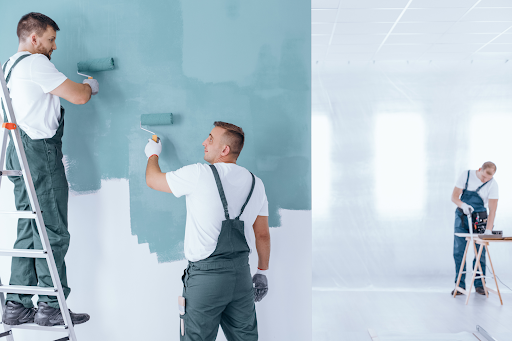6 Steps to Protect Your Home from Accidents and Damage
You may feel safe in your home, but every year, many people are injured in at-home accidents. It’s essential to make sure your home is well-protected. The smallest amount of damage to a home can cause serious problems.
It is best to start taking precautions as soon as possible. Fortunately, there are steps we can take to make our homes safer and to avoid risky circumstances. Here, we will discuss six practical steps to protect your home from accidents and damage.
Prevent Damage to Your Screen Porch Enclosure
Strong winds and bad weather can quickly damage your screen porch enclosure. It is also a great way to enjoy your pool while avoiding unpleasant insects and debris. It’s crucial to take some safety measures to prevent against damaging your screen enclosure.
Securely anchor the screen porch enclosure to the ground and use durable, weather-resistant materials for the panels. Consider purchasing protection panels for summer storm seasons. Lastly, remember to repair any tears or dumps in the screen immediately by taking these simple measures.
Fire Extinguisher and Smoke Detectors
You are familiar with the basics: having an unexpired fire extinguisher nearby and smoke detectors on every floor. However, can you protect against possibly devastating fire damage to your property? During winter, it’s crucial to ensure that space heaters are used safely, avoiding flammable materials. These moveable heaters are also the finest left switched off when the entire home is asleep.
Monitor Water Pressure by Using a Pressure Gauge
Hardware stores can help you measure water pressure using a water pressure gauge. You can attach the indicator to a nozzle in your lawn and then completely turn on the nozzle. In this way, you can get a reading of your home’s water pressure. Your pipes may burst as a result of high water pressure. It would help if you utilised a pressure regulator.
It consists of a valve that lowers water pressure from the main water line that enters your home to a safe level if the water pressure reading exceeds 100 psi.
Avoid Clutter and Keep Your Shower Area Safe
Make sure your floors are clutter-free to avoid falls and trips. Store toys, clothing, and books appropriately to ensure a clear route free of distractions. Check spills quickly to prevent slipping.
The shower can be dangerous since it’s easy to slip and fall, especially if you’re recovering from an injury, have balance issues, or are weak. To help prevent significant injury, install grab bars in your shower and place non-slip mats in the tub.
Regular Roof Inspections
Roofs are crucial for insulation and building protection, but neglect can lead to damage. Regular roof inspections can enhance roof lifespan and ensure good condition. Roof damage permits moisture to become active in a home, damaging paint, wall lining, and curtains.
The dampness also boosts the growth of mould, dust mites, and fungi, exposing home inhabitants to many health problems. A professional inspector can inspect your roof, recognise damaged parts, and account for the conclusions.
Check your Plumbing to Secure Leaks
The condition of your plumbing should be decent. But it would help if you inspected your pipes to make sure there aren’t any leaks. Water damage may occur from these leaks. To that end, check any leak problems that may arise. Make sure everything is operating correctly with your water heater.
In this manner, you’ll be able to enjoy that warm shower. Regularly check your plumbing for issues like a broken toilet, shower, or sink to ensure everything functions properly.









